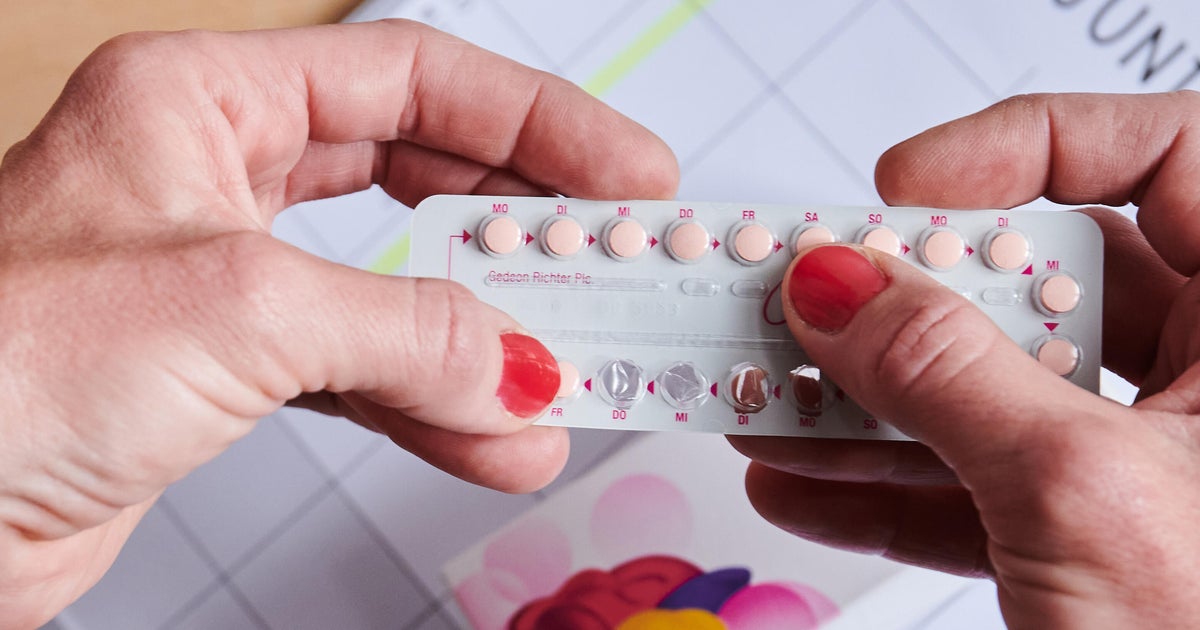

No response returned

As misinformation about women's health spreads faster than ever, doctors say new research on the risks of hormonal birth control underscores the challenge of communicating nuance in the social media age.
The massive study, which was conducted in Sweden and tracked more than two million teenage girls and women under age 50 for more than a decade, found that hormonal contraception remains safe overall, but also found small differences in breast cancer risk based on the hormones used in the formulation. In addition, the researchers observed a small, short-term rise in breast cancer diagnoses among current or recent users. Those findings are consistent with prior large studies, including a and a .
It was published online Oct. 30 in .
Doctors say these study results won't change how they advise patients and that women should not stop using their birth control.
Still, TikTok is flooded with factually incomplete warnings that contraceptives cause cancer and are as dangerous as smoking. Reproductive health advocates warn that studies like this online and be reduced to a single alarming number.
Case in point: reported that women who had used hormonal birth control had about a 24% higher rate of breast cancer than women who hadn't. But because is still uncommon in younger women, that works out to an increase from roughly 54 to 67 breast cancer cases per 100,000 women per year — about 13 extra cases per 100,000 women, or about one extra case per 7,800 users of hormonal contraceptives per year.
Co-authors Åsa Johansson and Dr. Fatemeh Hadizadeh, epidemiologists at , said the rise is modest and short-term, with risk highest during current use and fading within five to 10 years after stopping.
Rachel Fey — interim co-CEO of Power to Decide, a group whose mission is to provide accurate information on sexual health and contraceptive methods — said that kind of nuance is exactly what tends to disappear on social media. "I get really angry at this because it's designed to scare people like me away from birth control, which has made my life so much better in so many ways," she said. "It's really frustrating … especially when it's given without context. And then in this era of social media, it can just take off without anybody who knows what they're talking about providing that context."
The researchers also found the risk was slightly higher with certain progestins such as desogestrel — found in combined oral contraceptives like Cyred EQ, Reclipsen, Azurette, and Pimtrea — but did not increase with others, such as medroxyprogesterone acetate injections, sold under the brand name Depo‑Provera.
Some experts say the results should be viewed with care because the study counted both invasive breast cancers and early, noninvasive lesions known as in situ tumors, growths that may never become life-threatening. Including these precancerous cases could make the overall risk of clinically significant disease appear higher than it is.
"A substantial proportion of the 'cases' would never have progressed to invasive breast cancer," said Lina S. Mørch, a senior researcher and team leader at the Danish Cancer Institute. Mørch was not associated with the Swedish study. She added that experts should wait for more data separating early-stage and advanced cancers before making new rules or warnings about specific hormones.
Even as scientists debate how to interpret the finer points of the data, physicians emphasize that for most patients, the study reinforces what they already discuss in the exam room: that hormonal birth control is broadly safe, and decisions should be tailored to each woman's needs and values.
Dr. Katharine White, chief of Obstetrics and Gynecology at Boston Medical Center, said this study won't change how she talks to her patients.
"When counseling patients about their contraceptive options, I focus on their past experiences with birth control, their medical history, and what's important to them about their birth control method and pregnancy planning (if applicable)," White wrote in an email. "Side effects and risks of methods are already a key part of my counseling about both hormonal and non-hormonal methods."
Other doctors noted there are other contraceptive options.
Dr. Eleanor Bimla Schwarz, chief of General Internal Medicine at Zuckerberg San Francisco General Hospital, said, "For those who prefer hormone-free contraception, the copper IUD offers safe, convenient, highly effective contraception for over a decade after placement, and is rapidly reversible when pregnancy is desired," referring to a type of long-acting intrauterine device.
Dr. Mary Rosser, director of Integrated Women's Health at Columbia University Irving Medical Center, said this was a large, high-quality study that looked at many types of hormones over many years. But she added that doctors shouldn't change their advice yet.
Johansson and Hadizadeh stressed that the results should guide shared decision-making, not cause alarm. "It may be reasonable to consider formulations associated with lower observed risk in our data," they said. They noted that products containing medroxyprogesterone acetate, drospirenone, or levonorgestrel were linked to lower risk, while long-term use of desogestrel-only contraceptives might be best avoided when other options fit.
Hormonal birth control provides many health benefits beyond pregnancy prevention. It can lighten heavy periods, ease pain from endometriosis, and lower the risk of ovarian and uterine cancers for years after stopping. Mørch noted that even small risks are worth discussing but said decisions should be guided by women's "values and preferences."
White said it's important to see the big picture. "The risk of an unintended pregnancy is 85% for people who do not use contraception—so any risks of birth control need to be weighed against the risk of an unexpected pregnancy," she wrote.
is a national newsroom that produces in-depth journalism about health issues and is one of the core operating programs at — the independent source for health policy research, polling, and journalism.





